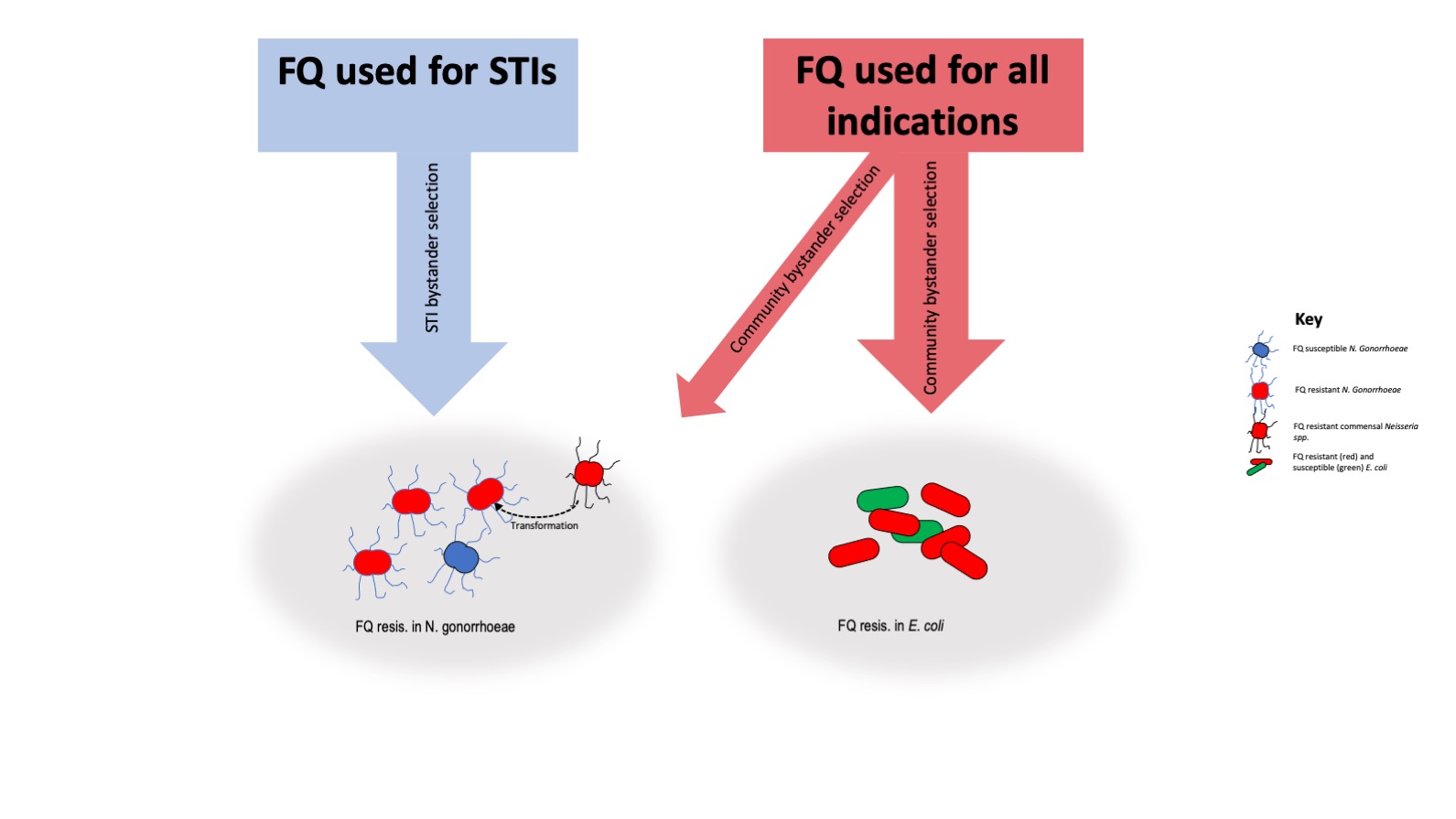It is unclear how important it is to reduce fluoroquinolone consumption in the general population to prevent the spread of fluoroquinolone resistance in Neisseria gonorrhoeae (bystander selection). Methods We assessed bystander selection by using Spearman’s correlation to assess if the country-level prevalence of fluoroquinolone resistance in N. gonorrhoeae was correlated with the prevalence of fluoroquinolone resistance in four other gram-negative species - Acinetobacter baumannii, Escherichia coli, Klebsiella pneumoniae and Pseudomonas aeruginosa. Results Fluoroquinolone resistance in N. gonorrhoeae was positively associated with homologous resistance in all 4 species - A. baumanii. (ρ=0.61, P=0.0003, E. coli (ρ=0.67, P<0.0001), K. pneumoniae (ρ=0.52, P=0.0004) and P. aeruginosa (ρ=0.40, P=0.0206). Positive associations were also found between the national prevalence of fluoroquinolone resistance and fluoroquinolone consumption in the general population in the preceding year for 4 of the 5 species. Conclusions Gonococcal fluoroquinolone resistance can be productively viewed as being part of a syndemic of fluoroquinolone resistance. Strengthening antimicrobial stewardship programs may help retard the spread of fluoroquinolone resistance in N. gonorrhoeae.

